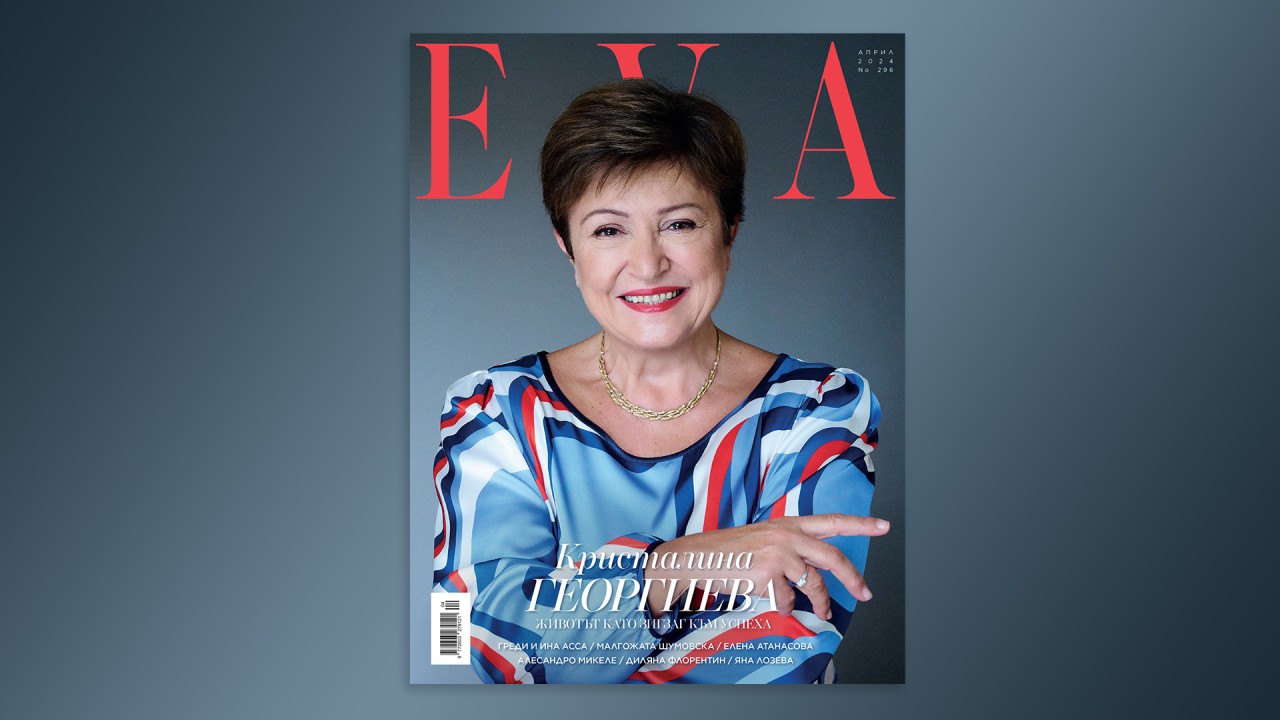Content
First appeared in EVA Magazine, April 2024
Interview by Lilia Ili-Eva
Photography by Huben and Slav
The first Bulgarian Managing Director of the International Monetary Fund, the first Bulgarian woman CEO of the World Bank, the first Bulgarian Vice-President of the European Commission in charge of the Union’s Budget and Human Resources, the first Bulgarian European Commissioner for International Cooperation, Humanitarian Aid and Crisis Response — these are just a handful of firsts in Kristalina Georgieva’s spectacular career. But the roles she holds most dear are those of mother, wife, and grandmother. We are honored to feature an accomplished, successful, and inspiring woman — and a genuine role model — on Eva Magazine.
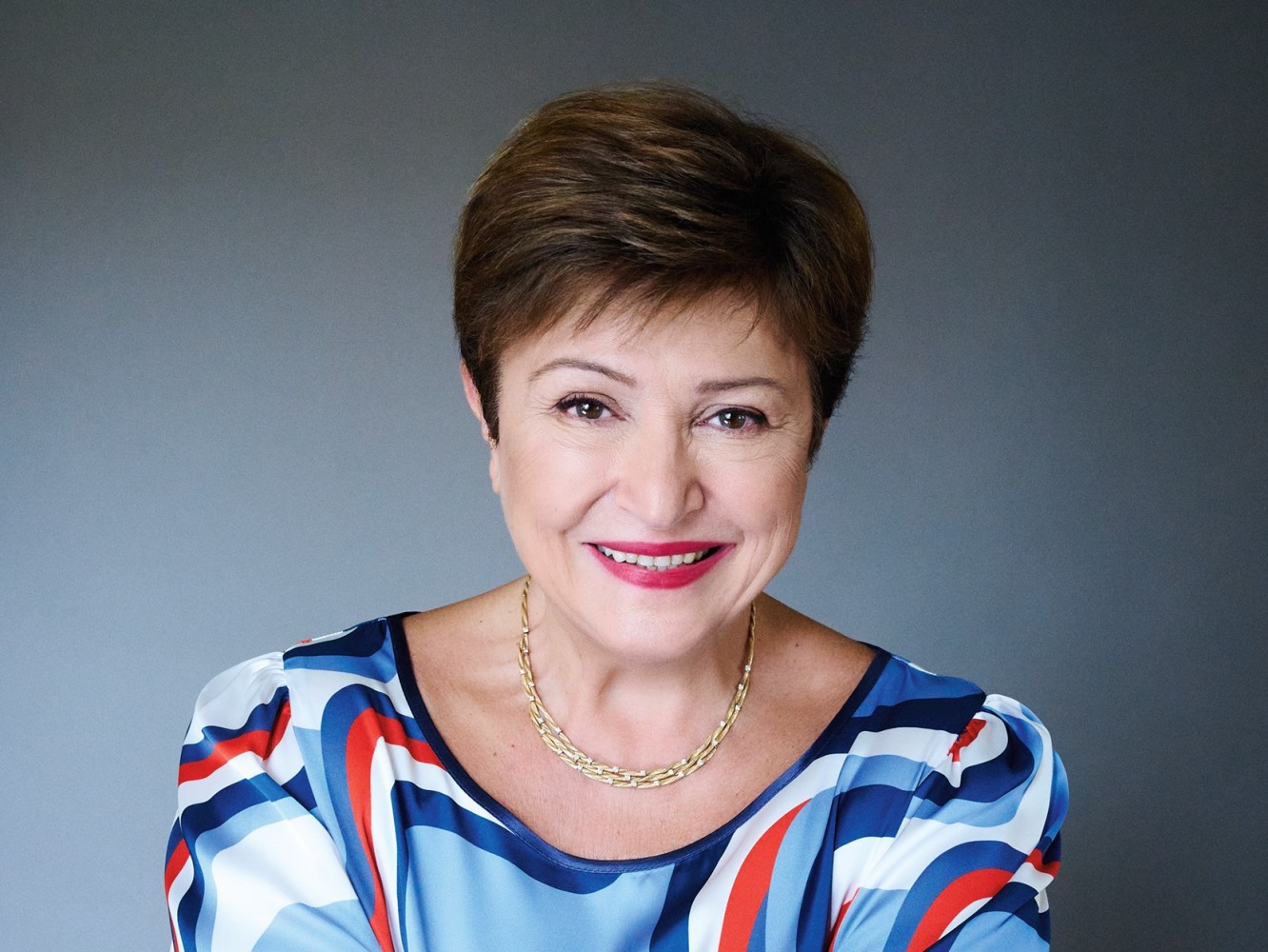
We meet at the hotel where Kristalina Georgieva is staying during her three-day visit to Bulgaria. She just gave a press conference. It’s barely 11:00 a.m
With Kristalina Georgieva, everything happens quickly, with utmost efficiency. Her schedule is broken down into minutes. And every second is used purposefully. So is every word she utters. She speaks with absolute concentration, often with a smile, yet she is approachable and logical, whether she is offering solutions to global economic problems, commenting on complex international issues, or sharing memories.
Meeting her is like climbing Mount Everest, for such is the distance she has traveled since her childhood behind the iron curtain in Bulgaria, to her early youth during the turbulent years of transition, and all the way to the position of a world-class leader charting the course for the world’s economy and pointing the way forward to countries in crisis and to the world at large. She has logged a lifetime’s worth of miles, conversed with history-making world leaders, offered life-changing solutions to countries in need, and, just before our interview started, made sure she dropped in to see her granddaughter. Few are blessed with a destiny like hers and have the strength to endure the journey she has been on. And fewer still would behave as humbly, grounded, and humanely as she does, no matter whom she speaks to. ‘There’s no banitsa (typical Bulgarian cheesepie) in America,’ she smiles, ‘and whenever I travel back to Bulgaria and have the chance, I like to grab one’. She offers me a piece right away. And our conversation begins.
Mrs. Georgieva, is it true that you see yourself as a woman of the arts and humanities?
Indeed, I do. In junior high school I was a very quiet child and I loved to read. I spent every summer with my grandparents in Lyubimets, a village that has now grown into a town. And you could always find me reading books in the village library. When I got to Steinbeck, I read all his books, one after another. Gradually I moved on to Kant and Spinoza. By junior high school, I was reading philosophy books. And I liked to retell them in simple words. When I was in the ninth grade at the Seventh Secondary School in Sofia, I sometimes invited my classmates to impromptu introductions to Kant between classes - we even sold tickets at four stotinki each and sometimes pulled off quite a large audience. My aim was to explain something that was complicated and abstract in simple words, to bring it closer to those around me. I started turning these concepts into songs that told stories about what made our generation tick.
To this day I value the ability to express one's feelings and thoughts in a way that others can understand and relate to.
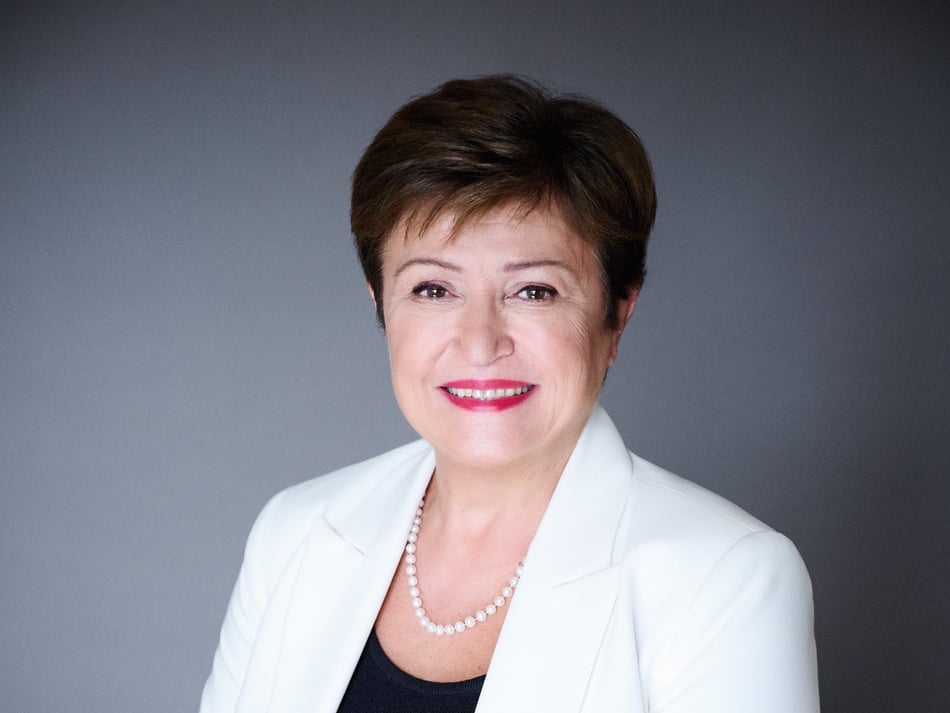
So how did a woman of the arts and humanities become a woman of numbers?
I wanted to study journalism, but at that time it was not easy to get a place at the Faculty of Journalism. Many applied, but only a handful were accepted. The political affiliation of one’s parents or their contacts played a role. It was hard to get a place, so I tried economic sociology and political economy and was accepted into the Institute of Economics. I started to study statistics and found out that numbers can also tell a story. Statistics help us to understand what is most natural, what is most likely to happen, but also what is unlikely. For example, it is highly probable that you’ll buy the most presents before Christmas or that you’ll go skiing in winter. At the same time, as my statistics professor used to say, the arithmetic mean is not always absolutely valid. It helps us understand trends, but it’s interpretation also carries risks. The professor gave us a very simple explanation: if you put your head in the oven and your feet in the refrigerator, your body will have an average temperature, but you might not survive the exercise. I liked the fact that I could use statistics to find out what I could expect in the future and that the numbers showed a trend.
What were your expectations for the future at that point?
I was just living my life. In the second half of my undergraduate years, I realized what had been obvious since junior high school — that I enjoy sharing my knowledge with others. So, when I got my degree, I became a graduate assistant at the university. To this day, I continue to take a great deal of pleasure in being able to explain a difficult concept to a large audience. And to see understanding dawn on people’s faces. This is one of the aspects of my job as Managing Director of the International Monetary Fund, in addition to predicting what lies ahead based on the numbers, that I truly enjoy. I need to be able to articulate our projections to the Member States and decision-makers alike in a way that helps them use the information in their daily work for the benefit of all people. Because if we do not fully grasp the problem, then how can we come up with the right solutions?
Have you properly thought through all the important decisions in your life? Or are there some that you have made intuitively?
There are no decisions that I have made with my head alone. You have to put your heart into every decision you make. Mine were the result of a little bit of serendipity and a lot of hard work. For example, Gorbachev came to power in the Soviet Union while I was teaching at the Economic Institute, and as a result of the changes that occurred in 1986, professors and researchers were finally able to apply for fellowships at Western universities. My Western language was French. I didn’t know any English, but I decided to apply to the British Consulate. In five months of intensive study while working, I learned enough English to travel to the UK. And then, in 1989, when the Iron Curtain fell, I was one of the few economists in Bulgaria who understood market economy. I wrote the first textbook on microeconomics in Bulgaria. This was very important because we were moving away from central planning to free movement of prices. Many people in Bulgaria at that time did not understand what a market was, what supply and demand were, how economics worked. I wrote the textbook in a way that all readers could understand the concepts it laid out. It was very successful and remained in print. Teaching economics in front of large audiences came quite natural to me. I loved it, and that was mainly because I knew what I was talking about.
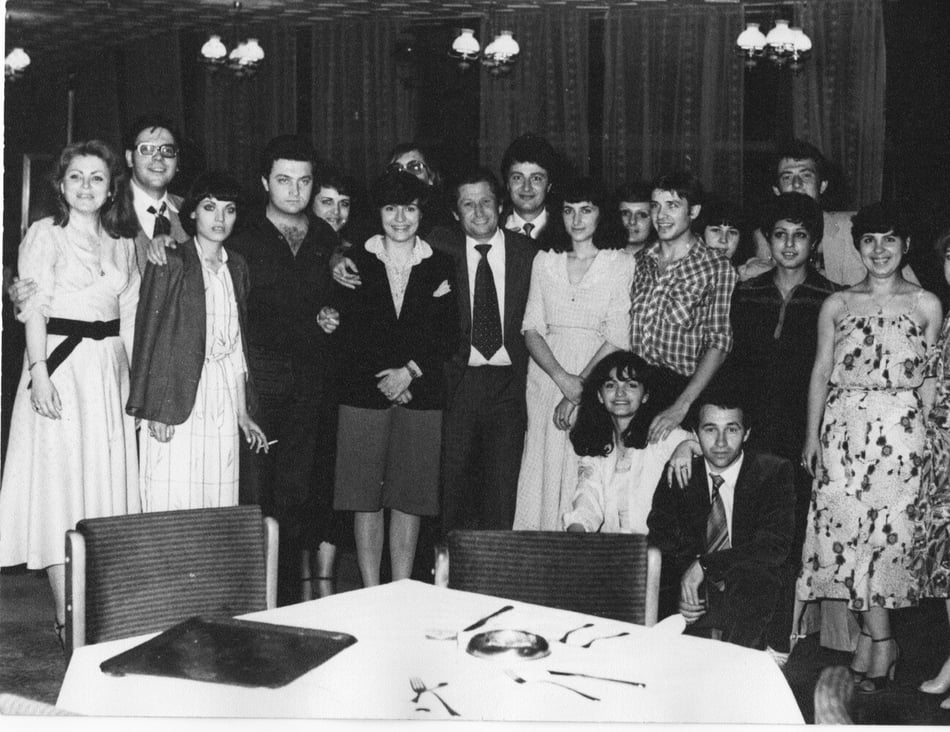
And you were the first Bulgarian to land in Fiji.
Oh, yes, indeed! I was invited as a visiting professor in Fiji, and since it had dawned on me in the UK that I could make a very capable professor, I didn’t think twice. I went for it. I’ve always found it important to be able to make decisions quickly. At the time, both Fiji and Australia required entry visas, but neither country had an embassy in Bulgaria. How I got the visas is another story, but in general it takes gumption to decide to do something and then follow through with it. When I landed in Fiji in 1990, the immigration officer, a lady, looked at my passport, pressed a few keys on the keyboard, looked at me and asked, ‘Where are you from?’ ‘Bulgaria,’ I replied. After a 48-hour trip to Fiji, I found the question a little unnerving. I thought — what could have happened in these troubled times to wipe Bulgaria off the map? As it turned out, I was the first Bulgarian to ever land in Fiji!
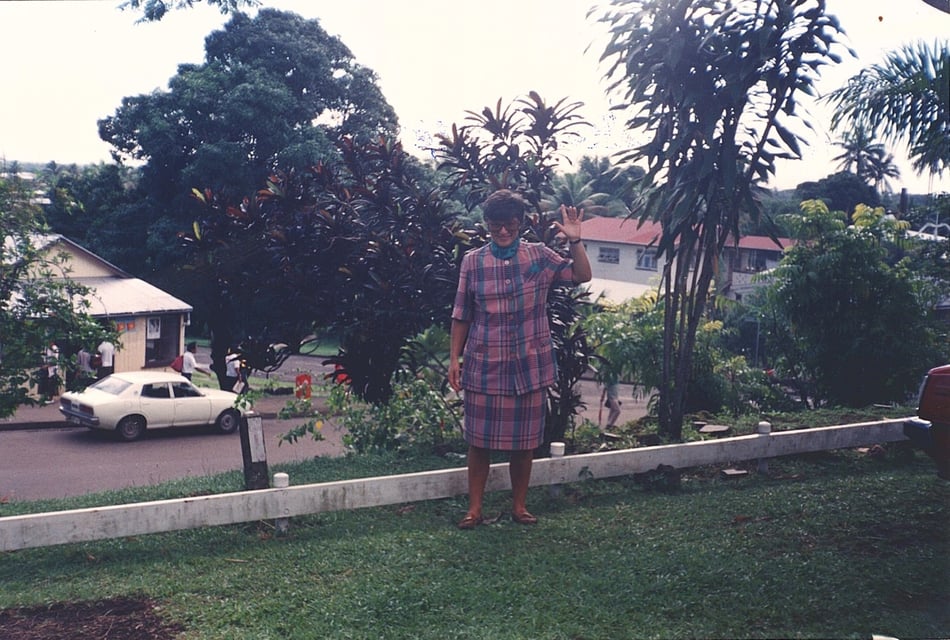
And now, thanks to the positions you hold at the global level, Bulgaria has a place on the world map. Is it possible for a person with your level of responsibility to have a personal life?
Well, let me tell you. Just before I came to see you I briefly stopped to spend some time with my granddaughter. Work usually takes precedence over my personal life. Some say that it is possible to find a balance between the two. And in some cases, it might work. But not always. I tend to miss out on personal time and the joy of being with friends and family. I don’t see it as a burden because I love to work. And it would be misleading if I give the impression, especially to women who aspire to successful careers, that it is perfectly possible to become the head of the International Monetary Fund and to maintain all your friendships and relationships without much difficulty.
I have a funny story. I was working on my dissertation and my daughter was in elementary school. At that time, it was more difficult for women to defend a dissertation than it was for men. Surprise, surprise: more was expected of us! I did a lot more teaching than any of my male colleagues. The professor gave me his lectures, supposedly out of the goodness of his heart. I was working twice as hard while writing my dissertation. Graduate students are usually given time to prepare, and all my male colleagues were given three months off from teaching to write. It never even occurred to me to ask why that wasn’t the case for me. I typed the final draft of the thesis on an electric typewriter at the far end of the kitchen so my daughter could get a good night’s sleep. I’d tuck her in, I’d type all night, and in the morning, she’d see me still sitting at the typewriter. She’d go to school and come home, and I’d still be at the typewriter. One day she came up to me, looking all worried, and said in a very serious voice, ‘Mom, I’m never going to write a thesis!’ My work always required me to make sacrifices.
Love and care come in many shapes and forms. Your area of work has had a significant impact on your daughter's life. How did you explain the nature of your work to her?
As a child she couldn’t really grasp it, but I passed on my professional interests to her, and I’m glad to see that she has grown up to be an independent and a strong woman, living the life she wants to. You know, in the 1980s there were a lot of people who wanted to tell other people how to live their lives. And that was hard for me to take. You probably remember how difficult the 1990s were economically. I used to say to my daughter, ‘I want to know that my family and my extended family, which includes my brother and my nephews, have the basic necessities in life’. My father died after a long illness when I was 25. It weighed heavily on him that he couldn’t take care of us. It was and still is very important for me to know that I and my loved ones can take care of ourselves.
What are your personal rules for sustainability in life?
The first is to value the relationship I have with those around me, in particular my loved ones. My father used to say, ‘Do good and throw it behind you. Give more than you take’. It has been a great privilege to help people in need, especially in my role as European Commissioner for Humanitarian Aid. The second thing that is very important to me is that you have an appreciation for the contribution you make with your work. I don’t work because I have to or because I need an income; I work because I love what I do. And the third thing is: don’t take yourself too seriously! You must have a sense of humor and be able to laugh at your own mistakes.
When I work, I work hard. And I party in the same way. When I’m faced with a problem that others say can't be solved, my first reaction is, ‘Wait! Why can’t it be solved?’ And I dive into it with my heart, not just my head. I do the same thing when I play the traditional Bulgarian line dance (horo).
I also think it’s crucial to realize that the earth is our only home. It is important that we live as responsible adults. Until a year ago, I used to tell stories to my granddaughter Ivana every night. Even when I couldn’t talk to her face to face, I recorded them and sent them to her as audio files. She wanted a story every night. So, I made them up, five minutes each. And there was a series about the dirty city, the lesson being that we have to respect nature.
Where does she go to school? What are her interests?
She goes to a German school. She’s very athletic and loves sports. She is currently into karate and has won medals in competitions. There’s a lot of discipline and philosophy behind it. She’s also very sociable, very open and outgoing — just like me. We love each other dearly. For two years in a row, she has come to the United States for a summer camp at the same place. The first time she came, she spoke very little English, and I worried whether she’d be okay. It’s a five-week camp. But she took to it like a duck to water. Last year she said to me, ‘Grandma, I'm having a great time. Just come pick me up on the last day’. And by then, she and her new friends had already made plans to see each other again the following year.
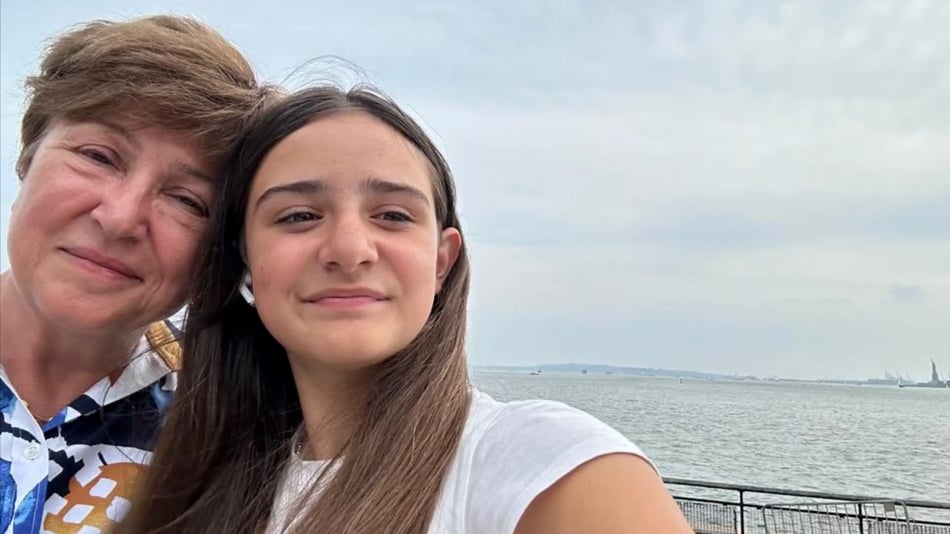
I really liked one of your stories. It was about coming home from school and hearing your mom and dad singing.
My father was a road worker, but he did a very good job and got a position as an engineer. He was very hardworking. He went to work at 6 a.m. and often came home late at night. He died prematurely. When he became ill, he went through a difficult time. He had one leg amputated. My mother took care of him both physically and emotionally. That is when they started singing. They’d often sit in the kitchen together — talking and singing. So, I’d come home from school and hear them singing, through the open window. It warmed my heart. I was very fortunate to grow up in a loving, caring, fun family. My mother, may she rest in peace, had a great sense of humor.
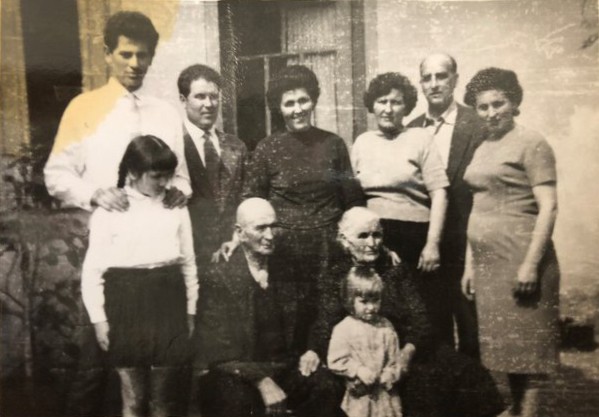
Really?
Yes. I’ll tell you two stories. When she turned 90, I told her, ‘I want to throw a birthday party that you will never forget. Invite whoever you want!’ At that time, I was working for the European Commission in Brussels. I used to call her every Saturday and I used to visit her a lot. So I kept asking her, ‘How’s the planning going?’ The first thing she told me was that she was thinking of inviting 26 guests. By the following Saturday, there were 82 guests on the list. By the time her birthday rolled around, the guest list had grown to 250 people, all of whom showed up. One of my colleagues from Brussels — she’s about thirty years old — came to the party. Her name is Irina. She gave my mother a bunch of flowers and said: ‘Mrs. Georgieva, happy birthday! I hope I’ll be able to congratulate you on your hundredth birthday. And my mother looked at her and said, ‘Well, you're still young and in good health, I don’t see why not. ’
But there’s another story that I love because it vividly illustrates who my mother was and how she raised me. She was 86 years old, and on one of her visits to the U.S., I told her I wanted to upgrade her flight to business class. She had been traveling economy, but she had pain in one of her legs, and I could afford to make her trip more comfortable. It took me months to convince her to upgrade. She argued that whether she traveled coach or business class, the distance would still be the same. But I finally prevailed. And then, to add insult to injury, I upgraded her to first class on the return flight to Bulgaria. More arguments followed. ‘Why do I have to sit in first class?’, she kept asking. ‘Will I finally grow horns?’ This was a private joke at home. So we got on the plane, both of us sitting in the first class cabin. My mother was silent, and it’s usually hard to get a word in edgeways when she’s around. The flight attendants came and went, offering us refreshments and making sure we were comfortable. At one point she turned to me and said, ‘Chrissy, I can feel my horns growing’. We burst out laughing. She was a good person — humble and honest. She believed everything she was told because she couldn’t imagine anyone lying. She never told a lie in her life.
What were the most important things she taught you?
She gave me a sense of responsibility — you have to be as good as your word.
If you can’t do something, explain why. And be humble. Make sure you have a solid set of values. Know that what you give to others is far more important than what you can take. And these are the values that I transmitted to my daughter. Despite having a mother that is often in the news, she always avoided the limelight: both when I worked at the World Bank and when I became Commissioner in Brussels. She drives a 14-year-old car, and when I suggested an upgrade, as people do in the U.S., she replied that the car was in good shape and did what she needed it to do. Not being wasteful and respecting the planet's resources is a lesson my mother taught me, and which I transferred to my daughter.
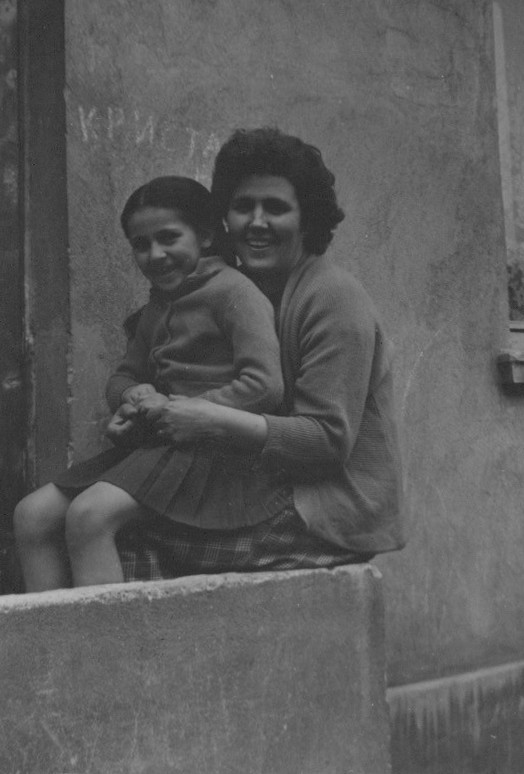
What is important to you in the way you communicate with other people?
There’s too much negativity in society. We have so many reasons to be optimistic about the future. In two weeks’ time, I will be in Cambridge to give a lecture on the economic opportunities for our grandchildren. My idea came from Keynes’s 1930 essay on economic opportunities for our grandchildren, written during the Great Depression in the United States, in the period between the two World Wars. In the essay, Keynes predicts that the world will be much richer in 100 years. He even predicted that the world would be eight times richer, and he almost got it exactly right. Another accurate prediction was that technology and capital accumulation would lead to greater prosperity. I also believe that life, like progress, is never linear, but it zigzags. If we take a very short period of time, we can always see some regression, but if we take a long enough period of time, the trend of the zigzag – the direction is forward and upward.
We have every reason to be optimistic. But optimism means that when we communicate with others, we should embrace and remember all the good and forget all the bad. I usually can’t think of anything to say when people ask me about my biggest disappointment. Every disappointment has taught me a lesson, and I’ve learned how to do things a little better.
We have to appreciate the good things in life and believe that what we have to go through, even if it is difficult and zigzagging, is for the sake of progress.
How do you want to be remembered?
As a person for whom there is no such thing as a problem without a solution.
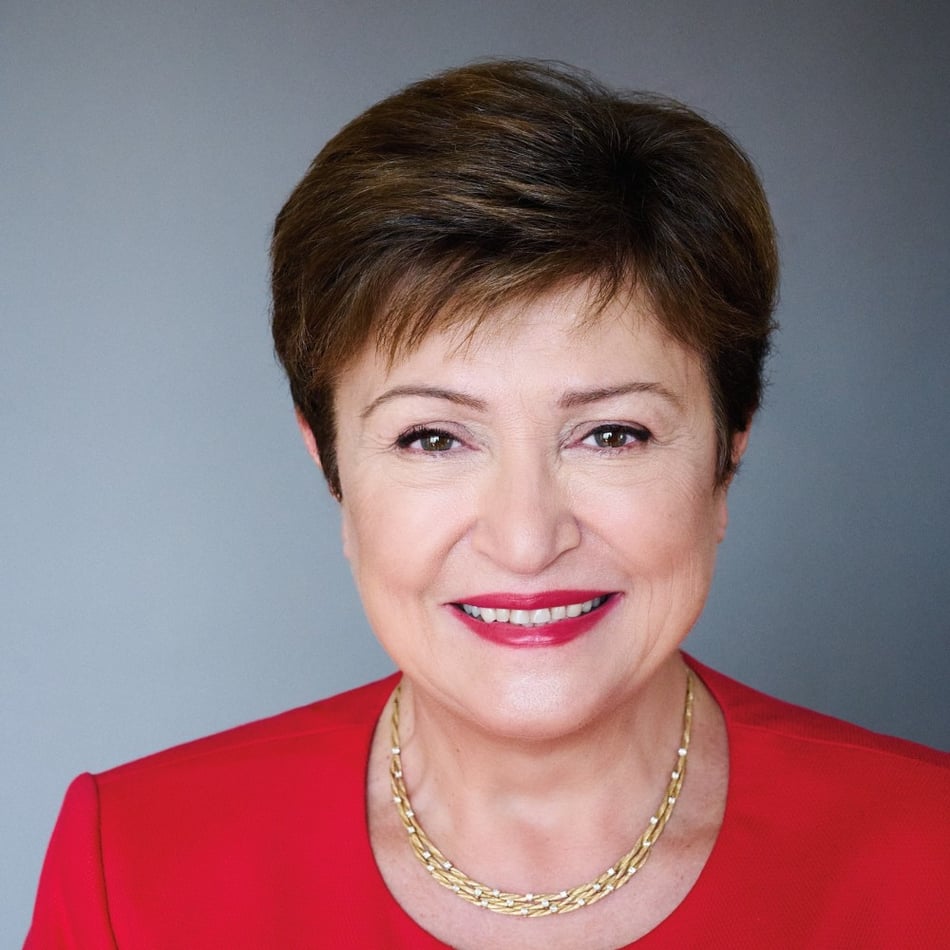
Many people who have experienced hardship and poverty are permanently scarred and have low self-esteem. Where do you get the confidence to face world leaders and Cambridge scholars with such poise?
I still find it very difficult to leave food on my plate or throw it away, because I remember the time when — I can’t say that we were starving — but there were certainly many in Bulgaria who didn’t have enough food on the table. I remember the time when breakfast was a slice of bread with a little salt. There was nothing else to put on the bread. When we celebrate Thanksgiving in America each November and there’s this big turkey roasting in the oven, sometimes people comment on how long it is going to take to finish it all. So I tell them not to complain. ‘When I was growing up, my mother would buy chicken and use it to cook at least three separate meals for the family. She’d first cook the chicken breast with some rice, then the rest of the meat with potatoes. And, if there were any leftovers, she’d make soup. I don’t remember the family ever sitting down to eat a whole chicken in one go. What a luxury that would have been!’
Other than that, overcoming my self-doubt and gaining the confidence that my opinions were sound and worth sharing, was also a challenge I had to fight.
How did you overcome this?
It took time. The turning point came in my fourth year at the World Bank, during a discussion on energy efficiency in the economies of the former socialist bloc, which were very inefficient. As the meeting drew to a close, I found the courage to express my opinion on the issue we were discussing. And the issue was that we should take responsibility for setting the price of energy at a level that encourages conservation, however politically difficult that may be — that we should support vulnerable consumers without subsidizing the rich. It was then that the Bank’s Vice President, who was leading the discussion, noticed me for the first time. And he gave me the floor. This simple gesture gave me confidence and I realized that I had a responsibility to speak my mind. If I could give advice to my twenty-year-old self, it would be to have a little more confidence.
I often say to the young girls I work with: ‘You’re smart, you work hard, you have to believe in yourself.’ If you doubt yourself, why should anyone else believe in you?
What are some of the most interesting encounters in your life that have changed you for the better?
For me, the most important encounters have been those that either clarified my priorities or helped me see something that I couldn't see before. Madeleine Albright is in the first category. She helped me understand the concept of the European Union’s crisis response system. When she heard my presentation on resilience in the increasingly fragile world we live in when I was Commissioner for Humanitarian Aid, she summed up what I was trying to say in just three words: Prevention, Preparedness, Rapid Response. That helped me formulate a coherent approach to the European Union’s crisis response system. We then set up a center for preparedness, prevention and rapid response. Many years later, at the Atlantic Council in the United States, I was given a leadership award, and the organizers asked me who I would like to introduce me to the audience. And I asked Madeleine Albright because she had helped me prioritize my work at the time. Also, because of her ancestral ties to the former Czechoslovakia, there was a natural connection between us. She was the first U.S. Secretary of State from our part of the world.
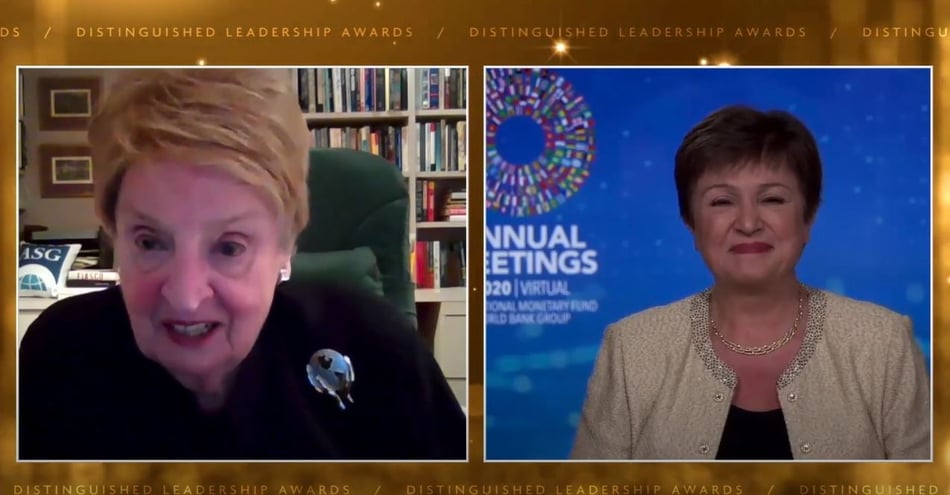
I also have the deepest respect and admiration for Pope Francis, a beacon of morality whom I have had the honor of meeting several times. We are united in our concern for the poorest and most disadvantaged, and in thinking about what we can do to help them. We first met when I was Commissioner for Humanitarian Affairs, and we stayed in touch throughout my work at the World Bank and the IMF. I have stayed at the hotel where the pope lives several times. He left the papal palace the moment he was proclaimed Supreme Pontiff and moved to the hotel where he lives a modest and frugal life. I was impressed to see that no one was waiting on him in the hotel dining room at breakfast and that he ate the same food as everyone else. I was even more impressed during a meeting when he said he had a small gift for me and went into the next room to get it for me without asking anyone to do it for him. It’s inspiring that he goes to places where people are most in need. That is a great example for me. It’s inspiring to see people in high places using their position to do good for others.
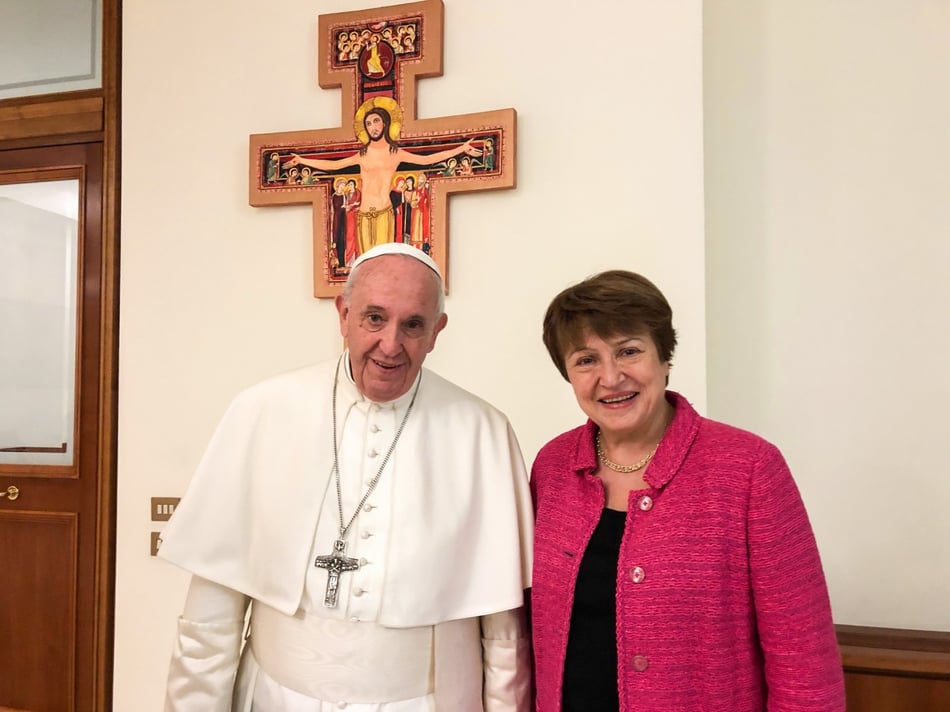
King Charles, whom I have known since my days as the World Bank’s Director for the Environment, does the same. He is an example of modesty and how a prominent public figure can focus the world’s attention on solving serious but underestimated problems. He talked about how conservation was in the best interest of business long before conservation became popular. Many of the world’s financial leaders owe their environmental literacy to him. In each of our meetings, I was impressed by his sincerity, humility, and desire to work for the good of all people. He is extremely careful with resources.
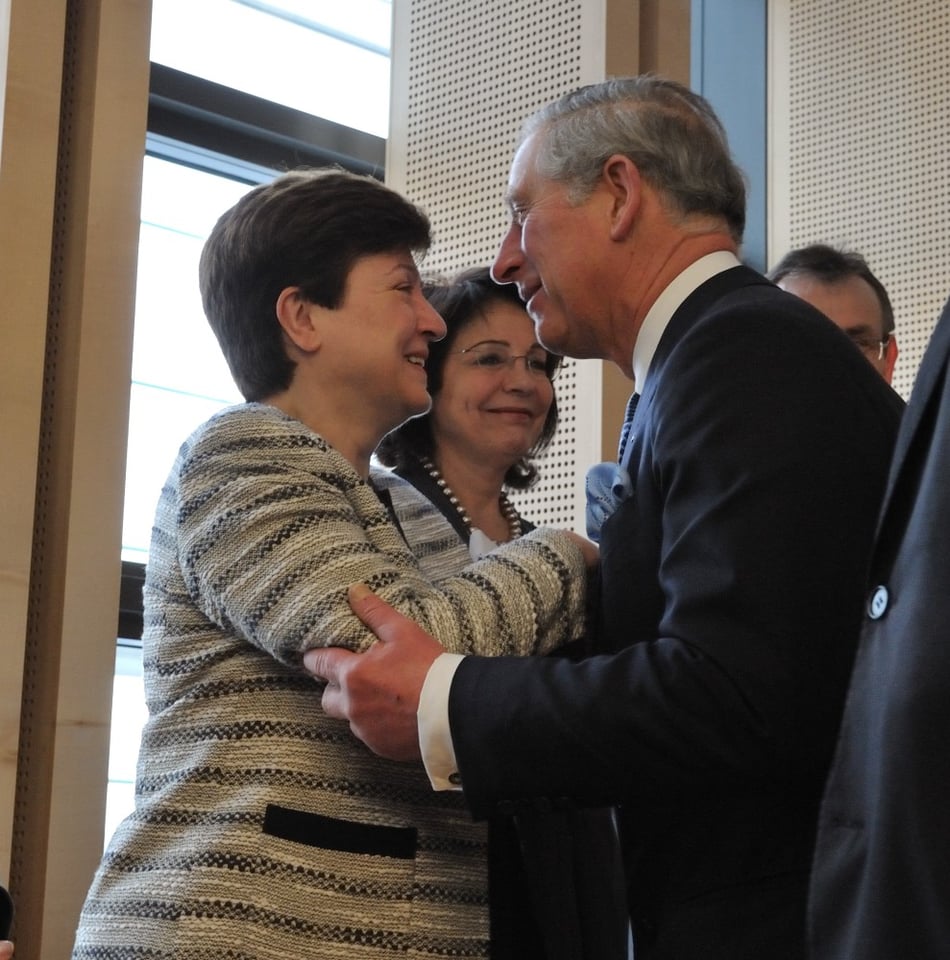
Sometimes the most valuable lessons in life come from those around us. When I first became a director at the World Bank, managing a staff of more than 200, my then-assistant, Jeanine Jackie, literally saved me from becoming disconnected from my colleagues. I pride myself on treating people with courtesy and respect. But we were going through a particularly tense period, and without realizing it, I had become more abrupt with my team. One day, my assistant came to me, closed the door, and said, ‘Kristalina, I need to tell you something. You’re changing. You’re losing your nerve. I have heard you raise your voice several times. What was my reaction? At first I said, ‘No way, that can’t be right. Then I thought about it and I remembered. And I did two things. I took time off, because when you feel overwhelmed, you inevitably reach a point where your productivity drops and instead of being efficient, your performance starts to drop. Second, I made a point of never forgetting my assistant’s words.
I am always careful not to raise my voice, yell, or insult anyone, even if they deserve it. Respect for people is fundamental, and a good leader should be an example of how to treat people.



